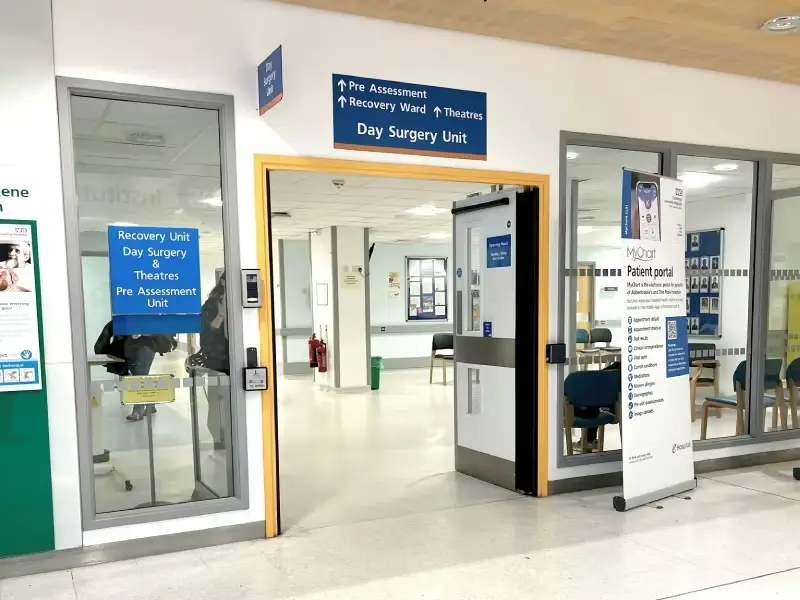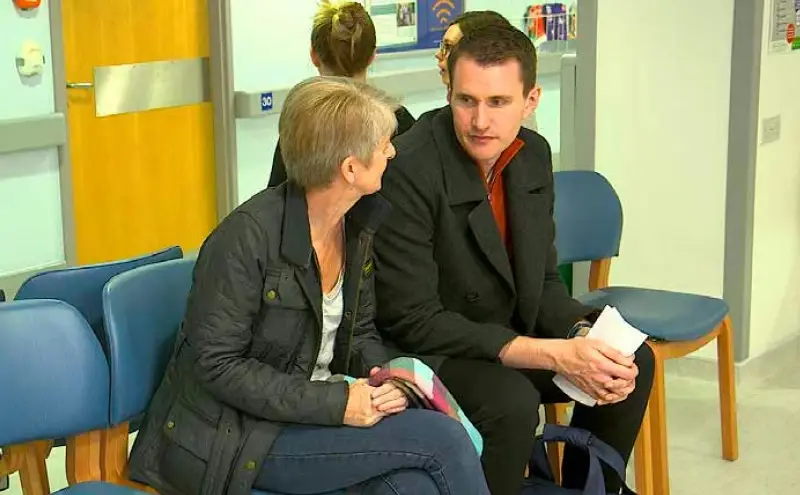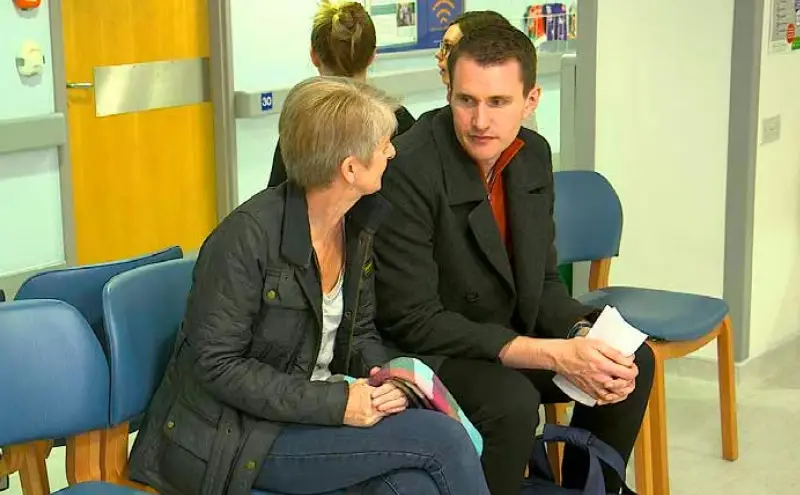Coming into hospital for treatment can be a stressful experience for some people. This section provides information about what to expect when you are admitted to the hospital for treatment so that you feel less anxious and are more prepared.
On the morning of admission, refer to the instructions on personal hygiene, eating and drinking and taking medicines in the previous section. You will find additional detailed instructions in your admission and preoperative assessment letters.
If you are feeling unwell when you are due to come into hospital, please call the number on your admissions letter.
What to do when you arrive

When you arrive at the hospital, please go straight to the Day Surgery Unit, unless you have been given different instructions on your admission letter. The day surgery unit is on Level 2 of the Addenbrooke’s Treatment Centre (ATC).
You can find a map of our hospitals on our finding your way around page, which will help you decide which entrance to use, and where you can be dropped off and/or park your car.
There are also volunteers about the hospital who can help and guide you.
Once you have arrived at the admissions area, a member of the reception staff will check your details. You will be asked to take a seat in the waiting area until the nurse is ready to call you through for admission.
Meeting your surgeon and anaesthetist
You will meet your surgeon and anaesthetist before your operation and, if you have not done so already, you will be asked to sign a consent form for your treatment. If you have any questions for your clinical team, please ask at any point.
Admission time
You will have an admission time of 7 am, 11 am or 12.30 pm, but you may not go to theatre until later in the day. You will either be asked to sit in the waiting area or at your bedspace until it is time to prepare you for your operation. Where possible, the nursing staff will be able to advise you how long this is likely to be.
The list order of patients having an operation can change on the day, and sometimes it may be necessary to go to theatre earlier or later than expected. This may be due to changes in a patient’s clinical condition or considerations about beds or staffing. Operations may also last a longer or shorter time depending upon the patient and circumstances. You can ask your surgeon or the nursing staff when you are likely to be going to theatre.
After your operation
Following your operation, you will wake up in the recovery area and then be taken to a ward.
Visitors and people dropping you off
Due to the number of people arriving for admission we cannot provide facilities for both patients and visitors. Therefore we ask that only one visitor remains with you. All other visitors must leave once you have been dropped off for your admission.

Key members of staff
Most of our ward staff wear uniforms to help indicate what role they undertake. The following picture will help you identify the staff you will meet.
All staff should wear an easily visible identification badge. This badge displays a photo, name, and role. Some staff members may also have an additional name badge. Please ask anyone to show you their ID if you cannot see it when they approach you as a member of staff.

Uniforms
- Matron
Navy with pale green piping - Ward manager
Navy with white piping - Junior sister
Royal blue with white piping - Staff nurse
Blue and white stripes - Health care assistant
Grey and blue stripes - Dietitian
Lilac - Specialist nurse
Navy with red piping - Physiotherapist
White with pale blue piping - Occupational therapist
White with green piping

